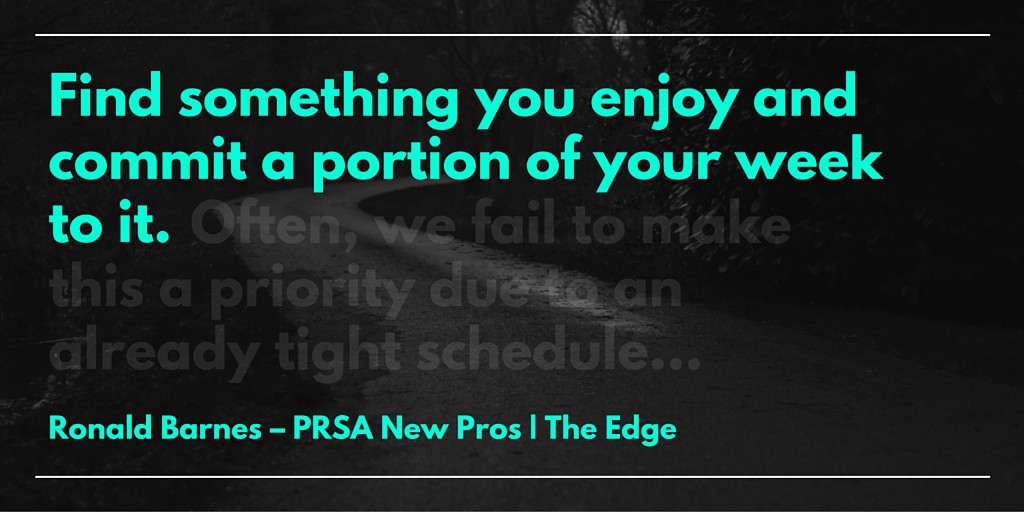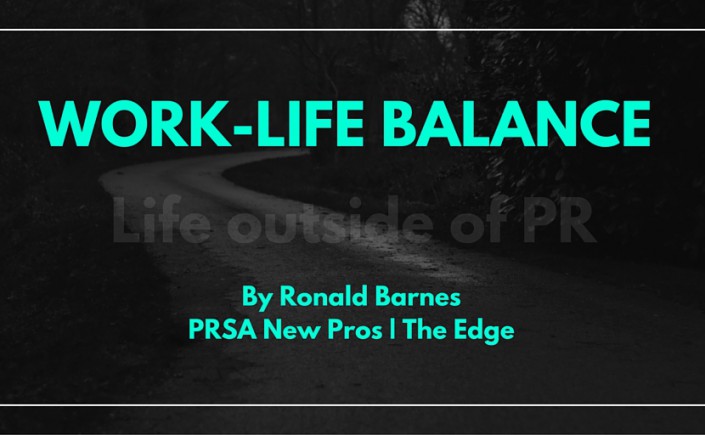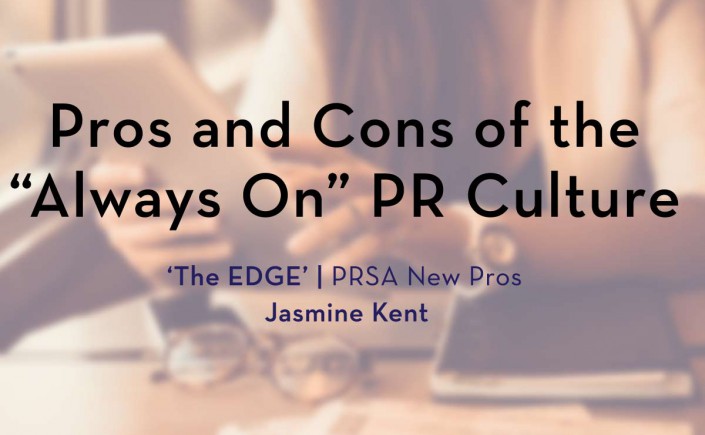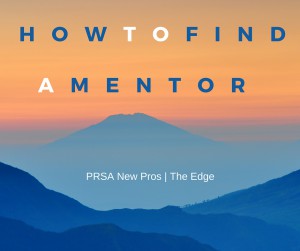“Work hard. Play hard.” This is every PR pro’s mantra, but let’s be real—emails can be relentless and sometimes there is zero time or energy left for ourselves or our families. I consider myself a lucky guy, I have an awesome wife and we just welcomed our second child. Balancing a great career while raising a family is arguably the best “problem” one could ask for, though that’s not to say it’s anything short of challenging. While we all have different aspects of our lives outside of work we are juggling, I’ll let you in on some secrets for balancing those demanding work weeks with a “work hard, play hard” lifestyle.
1.) Communication: Of course communication is my number-one! Communication is the foundation for any complex system and balancing work and family life is no different. Maintaining an open line of communication with your team is key, especially when accommodating a commitment that may call for some wiggle room in your schedule. Communication can also be equally important when it comes to keeping in touch with your family throughout a work day. Oftentimes, I like to take a break at work and squeeze in a quick FaceTime call with my family. This helps me stay in the loop at home, and lets them know that while I am busy, they are still a priority.
2.) Organization: Balancing work and family demands can get hectic, which makes organization crucial – especially when expectations and responsibilities at work may seem tenfold at home. We’re all human. Forgetting things is inevitable. Take notes and stay organized. Personally, keeping a calendar of important dates and tasks somewhere easily accessible is key to helping me stay on top of the things that need to get done.
3.) Equity: For me, this is where I have another cup of coffee and gear-up to handle business at home. Attempting to devote equal efforts to a work and home life may seem near impossible, but setting a goal that reflects this is a great step toward being successful at work, and having a peaceful, happy home life. To start, consider taking stock of the things you find yourself devoting the most time to at work, and make sure you have the resources and training in place to be successful. Sometimes, learning a new skill or simply asking for a little help can be the ticket to achieving greater stability in both areas. You need enough in the tank to be alert and effective after work too.
4.) Gratitude: Positivity is important and optimism is infectious. No matter how stressful the days may get, making an effort to maintain a thankful, positive mindset is crucial. A good attitude at work goes a long way toward building relationships with your colleagues and supervisor, which ultimately paves the way for a less stressful work environment overall. In the end, a positive outlook is the first step to perseverance and success.
 5.) Balance: Find something you enjoy and commit a portion of your week to it. Often, we fail to make this a priority due to an already tight schedule, but creating a window of time for yourself, and sticking to it, can create a more balanced you. For me, I enjoy riding my skateboard a few times a week, as it is the perfect solution to creating that balance we all strive for. Plus, it allows me to be outside and relax. How do you balance your hectic life? If you have any of your own tips for balancing work and family life, we’d love to hear!
5.) Balance: Find something you enjoy and commit a portion of your week to it. Often, we fail to make this a priority due to an already tight schedule, but creating a window of time for yourself, and sticking to it, can create a more balanced you. For me, I enjoy riding my skateboard a few times a week, as it is the perfect solution to creating that balance we all strive for. Plus, it allows me to be outside and relax. How do you balance your hectic life? If you have any of your own tips for balancing work and family life, we’d love to hear!
Ronald Barnes is a member of Sacramento’s PRSA chapter and an account coordinator at Prosio Communications, a California certified small business, and woman/minority owned public relations and marketing firm in Roseville, which specializes in media relations, crisis communication and community outreach. Ronald earned a public relations degree from California State University, Sacramento, where he successfully passed the Principles of Public Relations beta-examination. Connect with Ronald on LinkedIn and Twitter.









